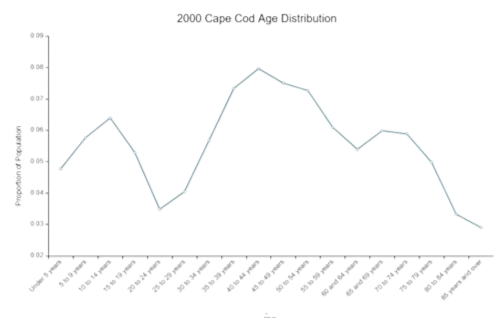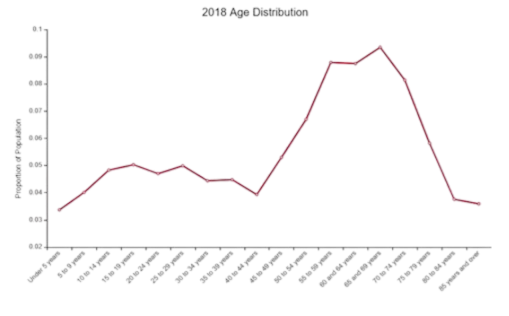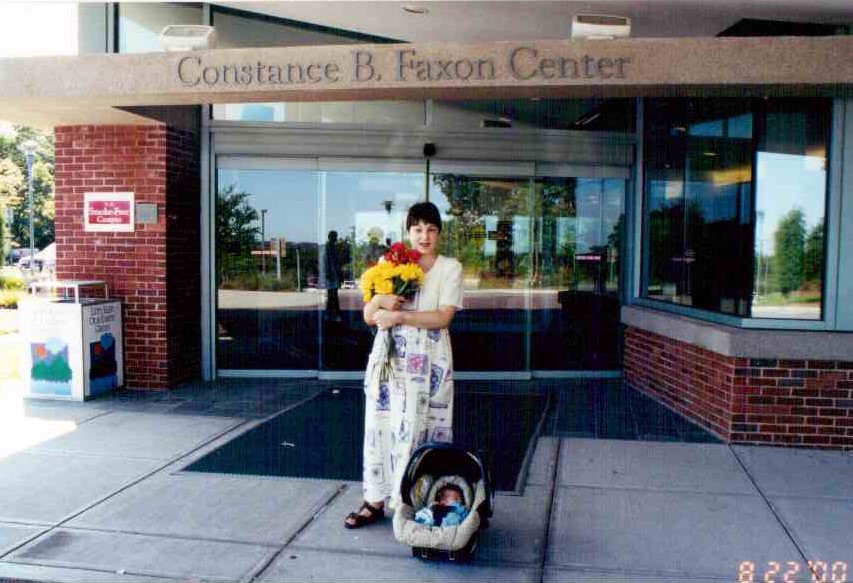On June 18th, Falmouth Hospital submitted plans to close down its maternity ward, a place that to me as well as to many others in our town was the first place we took a breath of air as we entered this world. Many were disappointed by this decision, though it was motivated by undeniable statistics regarding the drop in local childbirth, its implications were extremely symbolic. This event brings to the forefront a reality that few of us would like to acknowledge, but one that if we continue to ignore, may bring irreversible consequences to our way of life on Cape Cod.
A Dying Dream
Many of us know that young people are less likely to be able to live and stay on Cape Cod. We often subscribe to the myth that those who grow up here will leave the nest to pursue their education and develop themselves, maybe even find someone to settle down with. When the time comes, however, they’ll return here as if nothing has changed, they’ll mow their lawn and set up their white-picket-fence, and, most importantly, their children will go to Morse-Pond and bleed maroon and white.
Many of us know that young people are less likely to be able to live and stay on Cape Cod. We often subscribe to the myth that those who grow up here will leave the nest to pursue their education and develop themselves, maybe even find someone to settle down with. When the time comes, however, they’ll return here as if nothing has changed, they’ll mow their lawn and set up their white-picket-fence, and, most importantly, their children will go to Morse-Pond and bleed maroon and white.


Over the last two decades, the proportion of individuals over-55 as a part of our Barnstable County population has risen by 42%. This is a shocking statistic on its own, but what is even more disturbing is the unnatural distribution of the youth of Cape Cod as a whole. What was in the year 2000 a healthy (yet already dropping) crop of new children, with a visible dip once they reached their college years, followed by a steady return into their 30s and 40s, has turned into a lifeless flatline only showing change at the age of fifty, with a sudden spike and a plateau.
This is not what a healthy, vibrant, or thriving community looks like, this is unsustainable.
The issue of young people leaving Cape Cod isn’t just a problem for those that like to see youth on our shores, it speaks to the core issues that afflict our region, a lack of job opportunities, our inflated housing costs, and subpar local infrastructure.
Finding Solutions
Expanding Our Job Market
The labor environment on the Cape is, of course, centered around tourism and retirees. Many of our jobs are therefore based in the service and healthcare industry to fulfill these needs. However, these industries do not create enough well-paying jobs to provide for a functioning community.
Local gems like the Woods Hole Oceanographic Institute demonstrate to us how entire communities here on Cape Cod, in our very own town of Falmouth, can be lifted up by industries wholly independent of the seasonal and tourism-based Cape Cod economy.
There is absolutely no reason for our elected officials not to lead the charge in welcoming new employers to our region
We live in an age where new ground is constantly being broken in a variety of fields that the Cape is uniquely predisposed to take advantage of. These include environmentally conscious and green energy initiatives that promise to employ tens of thousands of STEM-educated young people across the United States; healthcare research and development that has never been more important than now; and a growing industry revolving around technology and IT which can operate remotely and independent of its proximity to urban hubs.
These industries are going to end up somewhere, and the Cape is a better location than almost any other. There is absolutely no reason for our elected officials not to lead the charge in welcoming these new employers to our region. This is especially valuable because a more stable and less seasonal Cape economy will bring about more bountiful opportunities for those already living on Cape Cod by expanding the need for child-care, education, first responders, and many other supporting jobs.
Investing in a Level Playing-field
The median income in our region does not come close to supporting the median home price. The economy of Cape Cod forces our working class to compete for every cost of living expenses with wealthy individuals who earned their money outside of our region.
In order to combat this, our towns and county have to embark on a comprehensive approach to investing in our youth so that they can, in turn, afford to live here and be productive members of our community. When it comes to affordable housing, we have to stop treating it as a third rail and a charity, instead, we have to take advantage of a variety of open and under-utilized spaces in our towns that can be repurposed in order to allow our youth to overcome the largest hurdle in starting a life on the Cape.
Investing in a reliable public transportation would open the outer-cape to a variety of new economic potential
Nevertheless, investing in our workforce does not have to stop or start at affordable housing. Our transportation system is solely geared towards transporting tourists, and even then it does so very poorly. With our sole source of reliable travel being by car, and our only public transportation is an expensive and inefficient bus service, it’s no wonder that even commuting to a job on Cape Cod while living in a less expensive area can be a nightmare. Investing in a reliable public transportation infrastructure would allow for individuals to work in our local towns while living off-Cape, would open the outer-cape to a variety of new economic potential, and additionally would be an extremely welcome boon both to our tourism sectors and help with our infamous congestion.
The proximity of our technological location is even more remote than our actual one
It is also ridiculous that on Cape Cod, in the year 2020, we still have no access to actual high-speed and modern internet service. With the current pandemic so forcefully showing us that many jobs can be done online, this should be welcome news to an area like ours whose main drawback to many industries is its remote location. However, instead, we are left far behind the rest of our country since the proximity of our technological location is even more remote than our actual one. It is beyond due that our local elected officials seek to work with the private sector to bring about an end to our local information monopoly.
These and many other options, including expanding town-offered child-care, creating tax-incentives for full-time residents, and a general effort to be more welcoming to youth and industry, provide simple yet extremely effective small steps that would allow for us to actively bring about a new future for our region.
A Social Shift
Often overlooked in these conversations is the fact that most people’s lives don’t only revolve around their paychecks and their rent-checks. The importance of social life in the lives of young people and the fact that the Cape does not do a good job addressing its needs is vital to acknowledge in this discussion.
Young people need to be around other people their age, when it comes to high-school and college we accept this as a guarantee. However, when it comes to our workforce, this is too often forgotten, and it may be the silent killer when it comes to our economy. Acting as a feedback loop, the more and more young people that leave our region, the less hospitable the area becomes to those that stay behind.
The more and more young people that leave our region, the less hospitable the area becomes to those that stay behind
This is an issue that is probably the most difficult to solve directly, and instead must be resolved organically once other solutions are put in place to revitalize our young population. However, we can definitely make a strong effort to not exacerbate the issue. This can be seen in a variety of social norms that are placed upon the community by force, such as earlier closing times for restaurants and other social gatherings (when it comes to non-COVID times), zoning biases, and misguided financial priorities.
Our local government has to reflect a much more diverse population than it currently does. Many of those in charge would make decisions that disincentivize youth from living here, not because they seek to do so maliciously, but instead because they cannot see it from the perspective of a younger individual. We must combat this by pushing our elected officials to see things from perspectives outside of their own, and by electing a new generation of leaders to our local government.
The Way Forward
The youth of Barnstable County do not exist in a vacuum. Losing this segment of our population, the children, the workforce, the growing and young adults, endangers our ability to even call ourselves a community and jeopardizes the sustainability of our whole region. Once the youth and the productive segments of our society go away, with them will go away many functions of our local infrastructure, our hospitals, our child-care, our schools.
We can’t move the jobs, homes, and lives of our young people to the other side of the bridges and expect them to return here ever again
The status quo is not working for our region. Since the beginning of the 2000s, we have been sweeping these issues under the rug. We can’t move the jobs, homes, and lives of our young people to the other side of the bridges and expect them to return here ever again. We are knocking away the support beams of our small unique society, and unless we approach this with new and brave solutions, I shudder to think what will be here for the generation that comes after me, two decades from now.




